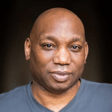
Episode 499: The Post-Book Malaise is Real with Maggie Mertens
"You start to wonder was it all worth it? Or what's the point in trying to do it again? You know, if there's going to be more disappointment in the future. I think it is something that you know probably just changes as you go on, regardless, right? I want to get that second book under my belt so it's not all just on this one, this one baby, you know?" says Maggie Mertens.
Maggie is the author of Better, Faster, Farther: How Running Changed Everything We Know About Women (Algonquin Books). It’s a brilliant book that traces the advancement of women’s athletics through running. Hard as it is to believe, but it was thought that women couldn’t, nay, shouldn’t run farther than 800 meters. Running might affect their fragile constitution, they might even ruin the work place … there’s a name for headlines like that one: They’re called subscription cancellers. [Context: The New York Times ran a podcast headline with its conservative columnist asking “Did Women Ruin the Workplace?” Anyhoo …
Maggie is making the freelance workplace a good time, thank you very much, and it’s a pleasure to get to celebrate her approach to the work and her incredible book that came out in 2024.
So Maggie’s work has appeared in the Wall Street Journal, The Atlantic, NPR, Sports Illustrated, ESPNw, Creative Nonfiction, among others. She has a Substack called My So Called Feminist Life at maggiemertens.substack.com and she does much of social media-ing on IG @maggiejmertens and you can learn more about her and her work at maggiemertens.com.
So Maggie and I talk about:
- The long book writing process
- Community
- Time pegs
- Strict deadlines for the self
- How she named her chapters in Better Faster Farther
- Taking the wins
- And the post-book malaise
Newsletter: Rage Against the Algorithm
Show notes: brendanomeara.com



















